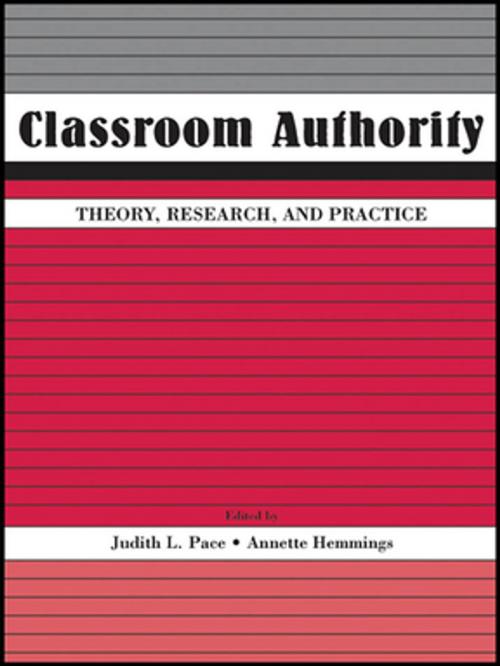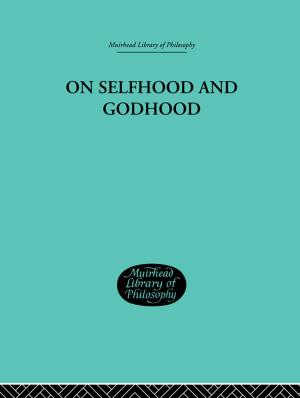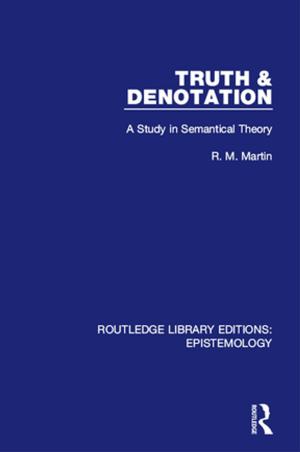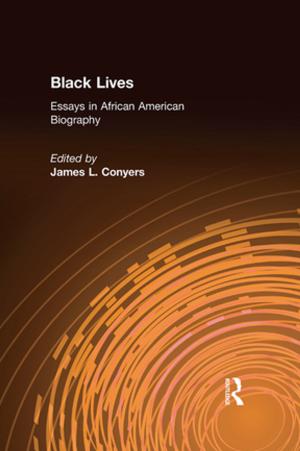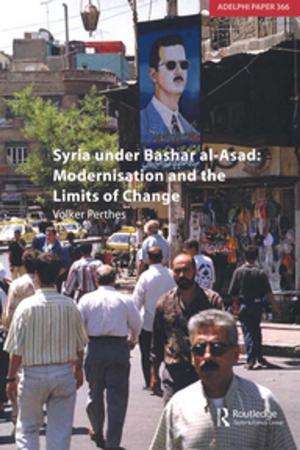Classroom Authority
Theory, Research, and Practice
Nonfiction, Reference & Language, Education & Teaching, Educational Theory, Aims & Objectives, Administration| Author: | ISBN: | 9781135608033 | |
| Publisher: | Taylor and Francis | Publication: | August 15, 2006 |
| Imprint: | Routledge | Language: | English |
| Author: | |
| ISBN: | 9781135608033 |
| Publisher: | Taylor and Francis |
| Publication: | August 15, 2006 |
| Imprint: | Routledge |
| Language: | English |
This book describes and analyzes authority relationships in classrooms through explorations of theory, prior research, and contemporary qualitative studies. The emphasis is on the social construction of authority and the crucial role authority plays in K-16 teachers' pedagogy and students' academic engagement and achievement.
The introductory chapter grounds the reader in social theory on authority; presents groundbreaking qualitative studies of classroom authority; describes ideological debates over authority in schools; and discusses implications for research, practice, and policy. Six field-based qualitative studies illuminate the dynamics of authority across a spectrum of K-12 and college settings. These studies feature a variety of methodologies, theoretical lenses, and interpretive perspectives that the authors use to gather and analyze data. The emphasis in all the chapters is on the nature, negotiation, and implications of authority relations between teachers and students. The epilogue pulls the book together by elucidating new findings and vital themes that expand the reader's vision of what classroom authority means, how it is constructed, and why it is so important.
This book seeks to revitalize dialogue and research on classroom authority with attention to the contextual factors that bear on its social construction. It is aimed at teacher educators, scholars, policymakers, students of education, and practitioners who seek empirically based understanding of authority that is inextricably connected to classroom life and ultimately to the larger issues of educational quality and democracy in schools and society.
This book describes and analyzes authority relationships in classrooms through explorations of theory, prior research, and contemporary qualitative studies. The emphasis is on the social construction of authority and the crucial role authority plays in K-16 teachers' pedagogy and students' academic engagement and achievement.
The introductory chapter grounds the reader in social theory on authority; presents groundbreaking qualitative studies of classroom authority; describes ideological debates over authority in schools; and discusses implications for research, practice, and policy. Six field-based qualitative studies illuminate the dynamics of authority across a spectrum of K-12 and college settings. These studies feature a variety of methodologies, theoretical lenses, and interpretive perspectives that the authors use to gather and analyze data. The emphasis in all the chapters is on the nature, negotiation, and implications of authority relations between teachers and students. The epilogue pulls the book together by elucidating new findings and vital themes that expand the reader's vision of what classroom authority means, how it is constructed, and why it is so important.
This book seeks to revitalize dialogue and research on classroom authority with attention to the contextual factors that bear on its social construction. It is aimed at teacher educators, scholars, policymakers, students of education, and practitioners who seek empirically based understanding of authority that is inextricably connected to classroom life and ultimately to the larger issues of educational quality and democracy in schools and society.
